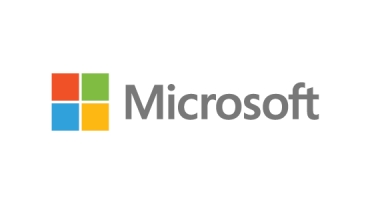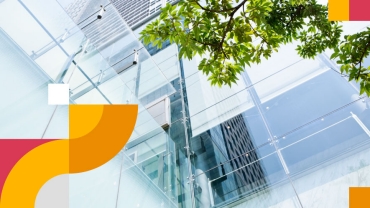
Technology-enabled sustainability
How IT can accelerate your company’s transformation for the future
There has been a significant increase in awareness about environmental and social topics among consumers in recent years. At the same time, the European Union (EU) has strengthened its rules related to these topics. This is increasing the weight of expectation for companies to adopt sustainable business practices. Companies will only be able to remain competitive and stand out in the market if they embrace this change – and they need to do it now. IT is a central function in modern companies and it offers opportunities to accelerate both the digital and the sustainable transformation.
“For a long time now, IT has been much more than an internal service provider. It plays a key role in making things possible and driving innovation. Companies can also leverage the potential of IT in the context of sustainability. This requires them to rethink their IT service organisation.”

Your situation
A sustainable IT function can have an impact on all areas of the company and can generate several benefits. To implement this effectively, companies need to ask themselves many questions – and need to overcome a wide range of challenges.
Technology-enabled sustainability initiatives generate advantages including:
You need to ask yourself these questions in advance:
How can we reduce energy consumption and electricity costs even though the use of energy-intensive devices and applications is constantly increasing?
How can we optimise the use and capacity of infrastructure and applications, including those that are part of key business processes?
How can we set up and purchase software that has the capacity to expand and adapt to the changing requirements of our business?
How can the digitisation of the workplace contribute to making our work more resource-efficient?
How can we use technology to promote improvements in employee satisfaction that place a strong focus on health, diversity and inclusion?
How can IT strengthen collaboration and deliver processes or tools that improve our innovation capabilities related to developing sustainable products and services?
How can IT contribute to making our company more sustainable – and contribute to high-quality, environmentally friendly products that meet the expectations of Millennials and Generation Z?

The sustainable transformation will generate the following challenges for CIOs:
The digital workplace, which makes mobile working possible, has become indispensable since Covid. In many cases, however, digital workplace trends like remote working and mobile working have not yet reached a sufficient level of maturity.
There are many processes in offices and production facilities that involve large amounts of paper and consume high volumes of energy.
The existing IT governance approach is often inadequate for supporting a further transformation towards sustainability.
Contractual and technical lock-in effects make it difficult to switch to environmentally friendly providers and technologies.
Legal considerations and regulations are becoming increasingly strict, and are often perceived as a risk rather than as an opportunity.
Internal approaches are often driven by regulations, efficiency pressure and CO2 savings. However, sustainable value creation requires a completely new mindset.
The expectations of internal customers and end customers are constantly rising, and these stakeholders believe companies have a responsibility to actively drive progress.
Our services
How we can support you
In order to address the above mentioned challenges in a holistic manner, companies need an approach that covers strategy and implementation. We use a method based on Design Thinking to develop a sustainable IT strategy.
- Discover: Identifying the strategic basis for reducing the CO2 footprint.
- Define & Develop: Creating a blueprint with input from every area of the company.
- Deliver: Sketching the IT masterplan, including a clear roadmap.
- Ensure & Optimise: Continuously assessing, analysing and adapting the strategy.
We implement this method in an agile manner and use our proven BXT approach, a triad that brings together perspectives from Business, Experience and Technology.

By drawing on agile or hybrid methods, the BXT approach also serves as a methodological basis for the definition and implementation of measures for digital transformation at later stages in the process.
Our services cover four key areas
- Digital strategy and IT strategy
- IT service management
- Digital workplace
- Cloud solutions and IT infrastructure
Digital strategy and IT strategy
Aligning the digital strategy and the IT strategy with the sustainability targets and the overall company strategy.
Supporting the sustainable transformation of the business by embracing mega trends and new technologies.
Strengthening and expanding innovation through digital services and capabilities such as the digital workplace, the Internet of Thing (IoT), Blockchain, Artificial Intelligence (AI) and virtual assistants in order to develop sustainable products and services with the business.
Defining sustainable measures in line with the company’s key challenges and its IT guidelines, while maintaining a user-centric focus.
Defining an IT governance and architecture framework with the goal of enabling the effective implementation of sustainability-related measures and working practices.
Our promise
The IT function has a responsibility to provide comprehensive support for the company’s sustainable transformation. This requires a long-term approach, beginning with a clear strategy that must make it possible to implement measures related to sustainable technology – and to anchor them within the organisation. The experts at PwC support you by applying their knowledge to your specific situation.
Our goal: To make technology-enabled sustainability a reality, from strategy through to implementation.












